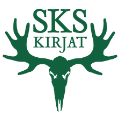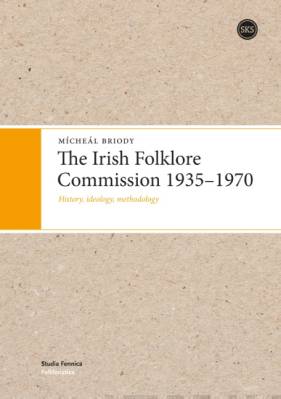The Irish Folklore Commission 1935-1970 — History, ideology, methodology
Briody, MícheálProduct information
| Title: | The Irish Folklore Commission 1935-1970 — History, ideology, methodology | ||
| Authors: | Briody, Mícheál (Author) | ||
| Product number: | 9789517469470 | ||
| Product form: | Paperback | ||
| Availability: | Delivery in 7-14 workdays | ||
| Price per piece: | 32,00 € (28,19 € vat 0 %) | ||
|
|||
| Publ. product code: | 1323473 |
| Publisher: | Suomalaisen Kirjallisuuden Seura |
| Series: | Studia Fennica Folkloristica 17 |
| Edition: | 2007 |
| Publication year: | 2007 |
| Language: | English |
| Pages: | 535 |
| Product family: | Anthropology Studia Fennica Folkloristica Books in English |
| Finnish library classification: | 81 KANSANRUNOUS |
| YSO - General Finnish ontology: | kansanperinne, kansanrunous, iirin kieli, kokoelmat, kerääjät, folkloristiikka, historia |
| Key words: | Folkloristics, Folklore, Folk poetry, collections, Irish language |
Between 1935 and 1970 the Irish Folklore Commission (Coimisiún Béaloideasa Éireann), under-funded and at great personal cost to its staff, assembled one of the world's largest folklore collections. The cultural, linguistic, political and ideological factors that had a bearing on the establishment and making permanent of the Commission and that impinged on many aspects of its work are here elucidated. This study also deals with the working methods and conditions of employment of the Commission's field and Head Office staff as well with Séamus Ó Duilearga's direction of the Commission.
This work should be of interest not only to students of Irish oral tradition but to folklorists everywhere. The history of the Irish Folklore Commission is a part of a wider history, that of the history of folkloristics in Europe and North America in particular. Moreover, the Irish Folklore Commission maintained contacts with scholars on all five continents, and this work has relevance for many areas of the developing world today, where conditions are not dissimilar to those that pertained in Ireland in the 1930's when this great salvage operation was funded by the young, independent Irish state.
This work should be of interest not only to students of Irish oral tradition but to folklorists everywhere. The history of the Irish Folklore Commission is a part of a wider history, that of the history of folkloristics in Europe and North America in particular. Moreover, the Irish Folklore Commission maintained contacts with scholars on all five continents, and this work has relevance for many areas of the developing world today, where conditions are not dissimilar to those that pertained in Ireland in the 1930's when this great salvage operation was funded by the young, independent Irish state.





